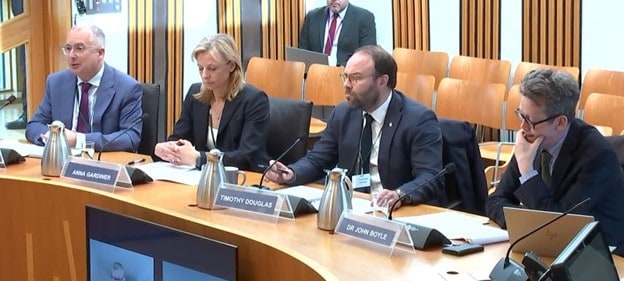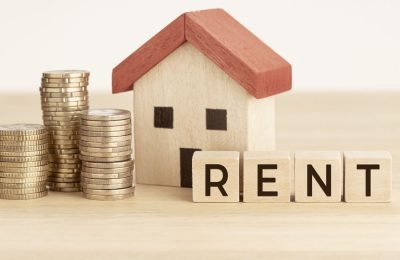Scotland’s Housing Bill ‘does very little to increase the supply of private rented homes’, Propertymark argues.
The Local Government, Housing and Planning Committee are currently examining the Bill and have asked for views on the legislation. It consists of proposals for long-term rent controls, new rights to retain pets and decorate properties, and enhanced safeguards against eviction.
Timothy Douglas, Head of Policy and Campaigns at Propertymark, provided evidence to the Committee on 18 June 2024 as part of Stage 1 scrutiny of the Housing (Scotland) Bill.
He stressed that the proposals in the Bill ‘do nothing’ to meet the huge demand crisis in the private rental sector, and that there is a ‘huge disconnect’ between what the Scottish Government is proposing and what is actually happening in the market.
Mr Douglas also slammed the lack of consistency with the proposals for rent control areas. Linking rent control to inflation, collecting data on the reasons for rent increases and determining areas by street or ward as well as ministers working to statutory timeframes when allocating rent control areas, would help bring more clarity for agents.
The Housing Bill’s future was thrown into jeopardy in April due to the resignation of Humza Yousaf as Scotland’s First Minister following the Scottish Greens’ removal from their coalition with the Scottish National Party, which was formed following the 2021 Bute House Agreement.
However, it was disagreements over the Scottish Government’s target to slash Scotland’s carbon emissions by 75% by 2030 which caused the co-leader of the Scottish Greens, Patrick Harvie, to resign his government position as Minister for Zero Carbon Buildings, Active Travel and Tenants’ Rights, and for Mr Yousaf to end the Bute House Agreement.
During a Labour-led debate on housing, the First Minister John Swinney MSP saved himself from an embarrassing moment in parliament by enabling Social Secretary Shirley-Anne Sommerville to announce a housing emergency that she blamed on Brexit and ‘Tory cuts.’
The challenge that exists
The First Minister also vowed to collaborate with other parties to confront ‘the challenge that exists’ regarding the £200m cut to the housing budget and working with local authorities that have declared housing emergencies, such as Glasgow City Council.
On 20 June 2024, Paul McLennan MSP, the Minister for Housing released a statement on the housing emergency in Scotland. He said: “The plan that I am setting out today [for a new national outcome on housing] is organised under three strategic pillars. First, we need more high-quality permanent homes. Secondly, we need the right homes in the right places. Thirdly, we need everyone to have a permanent home.”
Sadly, there was no mention in the statement about the damaging impact of the Cost of Living legislation on the private rented sector or the decision made by the Scottish Government to increase the Additional Dwelling Supplement (ADS) to 6% when purchasing a buy to let property. Scotland is now the most expensive place to invest in the private rented sector across the UK and Office for National Statistic figures shows that average rents in Scotland have increased more rapidly when compared to England or Wales, despite Scotland being the only UK nation to introduce rent controls, in the 12 months up to April 2024.
On 7 May 2024, Propertymark wrote to Paul McLennan outlining the need for the Scottish Government to reduce the tax and cost burden for private landlords in Scotland which in turn can help boost demand and bring down the cost of renting for tenants. In his response, the Minister said: “The Scottish Government continuously monitors and considers all available data regarding the impact of LBTT and the ADS on the housing market. Furthermore, I would note that the Scottish Government is continuing to support the emergence of the large-scale private rented sector through the exemption from ADS for purchases of 6 or more properties.” Perhaps, in the short-term reducing purchases to 2 properties or more may be a better way to increase supply and then moving to reduce the percentage rate of ADS.
Overall, Propertymark believes that in order to better understand the private rented sector and introduce pro-growth policies the Scottish Government must do two things. Firstly, commit in the Housing (Scotland) Bill to review all costs and taxes impacting private landlords within six months of the Bill passing – this must include the impact of decisions made by the Scottish Government and the UK Government. Secondly, commit in the legislation to publish an annual parliamentary update on the state of the private rented sector in Scotland. This should include data on the supply, size, and location of properties.











